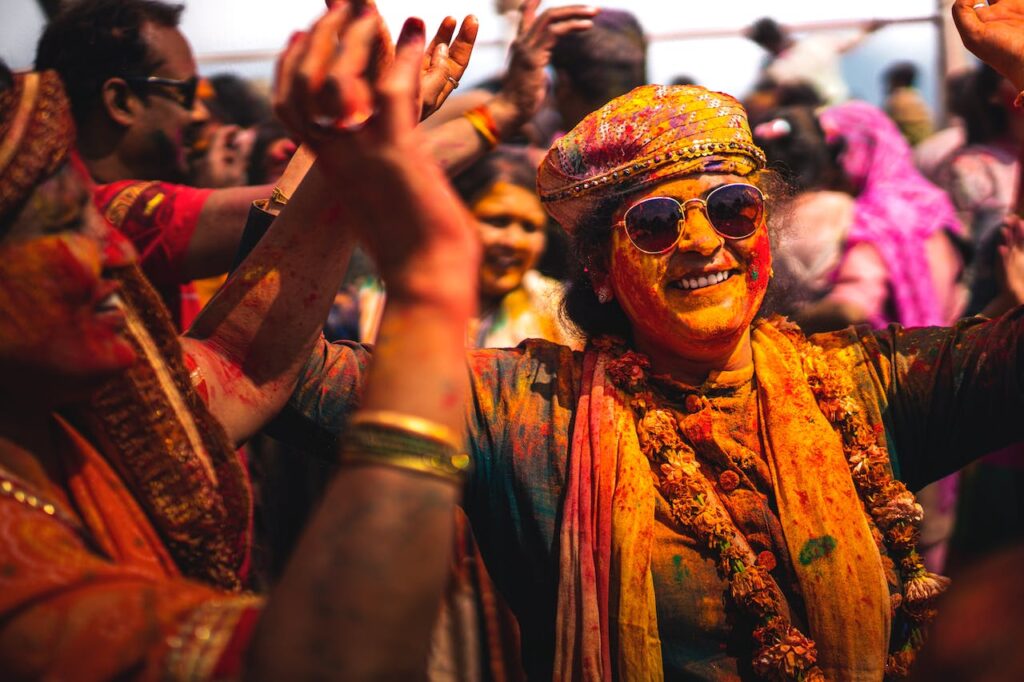
Visiting India solo? Here Are Some Tips For Staying Safe
Welcome to the incredible world of solo travel. India is a country renowned for its diverse landscapes, rich heritage, and vibrant cultures. Embarking on a solo journey in India can be a transformative experience, offering the opportunity for self-discovery and immersion in the beauty of this multifaceted nation.
However, with the freedom of solo travel comes the responsibility to prioritize safety considerations to ensure a secure and enjoyable adventure. In this blog, we will discuss some essential tips to help you navigate and savor your solo adventure through India.
Importance of Safety Considerations:
Solo traveling in India can be an exhilarating and rewarding experience, but it’s crucial to be mindful of safety considerations throughout your journey. Here are some key reasons why prioritizing safety is paramount.
Diverse Environments:
India, known for its kaleidoscope of cultures, languages, and traditions, offers solo travelers an opportunity to discover the beauty of unity in diversity. From the serene Himalayan mountains to the sun-kissed beaches of Goa, and the bustling streets of Delhi to the tranquil backwaters of Kerala, each region unfolds a different chapter of this incredible nation.
Cultural Sensitivity:
India is known for its diverse cultural tapestry. Respect for local customs and traditions is not only a matter of courtesy but also a safety consideration. Familiarize yourself with cultural norms, dress codes, and appropriate behavior to ensure a positive and respectful interaction with the local population.
Safety First:
While India beckons with its charm, it’s crucial to prioritise safety considerations throughout your journey. Here are some key tips to ensure a secure and enjoyable solo travel experience:
1. Research and Planning
Before you set out, research the destinations you plan to visit. Familiarize yourself with local customs, traditions, and any safety concerns specific to the region. Plan your itinerary and share it with a trusted friend or family member.
2. Accommodation
Choose accommodations with good reviews and reputable safety standards. Opt for centrally located hotels or guesthouses, especially if you plan to explore urban areas, to ensure easier access to transportation and assistance if needed.
3. Transportation
Use reliable transportation options and, when possible, travel during daylight hours. Pre-book reputable transportation services and be cautious when using public transportation, especially late at night.
4. Stay Connected
Keep your loved ones informed about your whereabouts. Regularly update someone on your journey, and consider carrying a local SIM card or an international phone plan to stay connected during your travels.
5. Trust Your Instincts
If something doesn’t feel right, trust your instincts and prioritize your safety. Be cautious about sharing personal information and belongings, and avoid isolated or poorly lit areas, especially at night.
6. Female Solo Travel
Female travelers should be vigilant about personal safety. Dress modestly, avoid isolated areas at night, and consider staying in accommodations with good security measures. Trust your instincts, and if in doubt, seek assistance from locals or authorities.
India invites solo travelers to embark on a transformative adventure, where every step reveals a new facet of this incredible nation. By embracing the rich diversity and prioritizing safety, your journey promises not only exploration but also profound personal growth. Get ready to be enchanted, enlightened, and empowered as you navigate the vibrant tapestry of India on your solo expedition!
Cultural Insights for Solo Travelers:
1. Greet Locally:
In India, greetings are often accompanied by gestures like the traditional “Namaste.” Embrace the local customs, be respectful, and don’t hesitate to reciprocate with a warm greeting.
2. Dress Modestly:
While India is diverse, many regions value modest clothing. Dressing conservatively, especially when visiting religious sites, will help you blend in and show respect for local norms.
3. Food Etiquette:
Indian cuisine is a delight for the senses. Embrace local flavors but be cautious with street food, especially if you have a sensitive stomach. Opt for bottled water and ensure that the food is prepared in hygienic conditions.
4. Bargaining Culture:
Bargaining is a common practice in markets and street shops. Polite negotiation is expected, so don’t hesitate to engage in this cultural aspect of shopping.
5. Public Displays of Affection:
While attitudes are changing, public displays of affection may still be frowned upon in some conservative areas. It’s advisable to be discreet in such situations.
6. Photography Etiquette:
Seek permission before taking photographs, especially of people and in religious places. Some locations may have restrictions on photography, so it’s essential to be respectful.
7. Food Customs:
Embrace the diverse Indian cuisine, but be cautious about street food to avoid stomach issues. Eating with your right hand is customary, and it’s polite to finish everything on your plate.
8. Understanding the Concept of Time:
The concept of time can be fluid in India. Be patient, especially in more rural areas. Allow for flexibility in your schedule and go with the flow.
Regions with Specific Safety Considerations:
1. Delhi:
As the capital city, Delhi is a vibrant mix of history and modernity. Exercise caution in crowded places, and be aware of pickpockets. Stick to well-lit and populated areas, especially at night.
2. Goa:
Known for its beautiful beaches and vibrant nightlife, Goa is generally safe. However, be cautious of your belongings on crowded beaches and in bustling tourist areas.
3. Rajasthan:
The desert state of Rajasthan is rich in history and culture. While the cities are generally safe, be cautious in remote areas, and use reliable transportation for long-distance travel.
4. Kolkata:
This cultural hub in the east has a warm and welcoming atmosphere. Exercise usual precautions in crowded areas and public transportation, and be aware of your surroundings.
5. Mumbai:
A bustling metropolis, Mumbai is relatively safe, but stay vigilant in crowded places. Make use of reputable transportation options and be cautious in tourist areas.
6. Kashmir:
While breathtakingly beautiful, the region has experienced political unrest. Stay informed about the current situation, follow local advice, and avoid areas with known security concerns.
7. Northeastern States:
The northeastern states are known for their diverse cultures. While generally safe, be aware of local customs, and stay informed about any specific safety considerations in certain areas.
8. Kerala:
Kerala, a serene destination, is generally safe. However, be cautious about isolated areas, especially if you’re exploring the backwaters alone. Stick to well-traveled routes.
Remember, India’s vastness means experiences can vary widely. Stay informed, trust your instincts, and be open to the incredible diversity that makes solo travel in India a truly unique adventure.
Transportation Tips:
When it comes to transportation, especially as a solo traveller, safety is a top priority. Here are some tips for choosing safe modes of transportation and navigating public transport securely:
Choosing Safe Modes of Transportation:
1. Research Transportation Options:
Before arriving at a new destination, research and familiarise yourself with the safest and most reliable modes of transportation available. Identify reputable taxi companies, rideshare services, and public transportation options.
2. Official Taxis and Rideshares:
Prefer registered and official taxis or rideshare services. Use well-known apps and verify vehicle details and driver information before getting in. Avoid accepting rides from unmarked or unauthorised vehicles.
3. Public Transportation Safety Ratings:
When using public transportation, such as buses or trains, check safety ratings and reviews. Opt for well-maintained and reputable public transport systems to minimise risks.
4. Choose Established Transportation Providers:
Select transportation providers with a good reputation. Whether it’s a bus company, train service, or airline, opt for those with positive reviews and a history of safe operations.
5. Night Travel Considerations:
If you need to travel at night, choose well-lit and busy routes. Avoid poorly lit or isolated areas. Consider pre-booking transportation options to ensure a secure journey, especially in unfamiliar places.
Navigating Public Transport Securely:
1. Plan Your Route:
Before using public transportation, plan your route. Familiarize yourself with the stops, transfers, and timings to minimize confusion during your journey.
2. Use Navigation Apps:
Utilize navigation apps to track your journey in real time. This not only helps you stay on the right route but also provides an extra layer of security.
3. Be Mindful of Belongings:
Keep your belongings secure at all times, especially in crowded public transport. Use anti-theft bags, and be cautious of pickpockets in busy areas.
4. Avoid Empty Carriages or Compartments:
When possible, choose compartments or carriages with more people. Avoid empty or isolated areas, especially during off-peak hours.
5. Know Emergency Exits:
Familiarize yourself with the location of emergency exits on buses and trains. In the event of an emergency, knowing the quickest way out can be crucial.
6. Use Well-Lit Stations and Stops:
Opt for well-lit stations and bus stops, especially during nighttime travel. Stick to areas where there are people and transportation staff available.
Tips for Secure Solo Journeys:
1. Inform Someone of Your Plans:
Share your travel itinerary with a trusted friend or family member. Keep them updated on your whereabouts and any changes to your plans.
2. Stay Connected:
Keep your phone charged and stay connected. Ensure you have a local SIM card or an international roaming plan for communication, navigation, and emergencies.
3. Trust Your Instincts:
Listen to your instincts. If a situation or place feels unsafe, trust your intuition and consider alternative routes or transportation options.
4. Emergency Contact Information:
Save local emergency numbers and contacts in your phone. Know the location of the nearest police stations, hospitals, and your country’s embassy or consulate.
5. Stay Informed About Local Customs:
Understand and respect local customs and cultural norms, especially when using transportation. This can contribute to a smoother and more secure travel experience.
6. Connect with Other Travelers:
Consider joining online travel communities or forums to connect with other solo travelers. Sharing experiences and tips can provide valuable insights into safe solo travel.
7. Be Aware of Scams:
Familiarize yourself with common scams in the area you’re visiting. Stay vigilant and be cautious of unsolicited assistance or overly friendly strangers.
By integrating these tips into your travel plans, you can make informed decisions about transportation modes, navigate public transport securely, and ensure a safe and enjoyable solo journey. Always prioritize your safety and well-being while exploring new destinations.
Choosing Accommodations Wisely:
When selecting safe and reliable places to stay, especially for solo travelers, it’s important to consider several factors to ensure a comfortable and secure experience. Here are some key features to look for in solo-friendly accommodations:
1. Research and Reviews:
Conduct thorough research on potential accommodations. Read reviews from other travelers on platforms like TripAdvisor, Booking.com, or Yelp. Look for consistent positive feedback regarding safety and reliability.
2. Safety Ratings:
Check for safety ratings or certifications from reputable organizations. Some accommodations display safety certificates, indicating compliance with industry standards.
3. Location Considerations:
Look for accommodations that highlight their safety measures. This could include features like secure entrances, surveillance cameras, and well-lit common areas. Accommodations that prioritize safety often communicate these features.
4. Prioritize Reputable Booking Platforms:
Stick to well-known and reputable booking platforms such as Booking.com, Airbnb, or reputable hotel chains. These platforms often have user reviews and ratings that can provide insights into the safety and reliability of accommodations.
5. Location Assessment:
Research the neighborhood where the accommodation is located. Opt for areas with good safety records and proximity to public transportation, restaurants, and well-lit streets. Online maps and travel forums can provide insights into the safety of different areas.
6. Look for Established Chains:
Consider staying at established hotel chains with a good reputation for safety. These chains often have standardized safety protocols and well-trained staff.
Solo-Friendly Accommodation Features:
1. Single Room Options:
Choose accommodations that offer single room options. This provides privacy and security for solo travelers who prefer their own space.
2. 24/7 Reception or Security:
Prioritize accommodations with 24/7 reception or security services. Having staff available at all times adds an extra layer of safety and assistance.
3. Well-Lit Common Areas:
Ensure that common areas such as lobbies, hallways, and outdoor spaces are well-lit. This contributes to a secure environment and helps you navigate the property safely.
4. Secure Entry and Exits:
Check for secure entry and exit points. Controlled access to the accommodation can enhance safety and prevent unauthorized individuals from entering.
5. Wi-Fi Connectivity:
Choose accommodations with reliable and secure Wi-Fi. This not only keeps you connected but is essential for communication, navigation, and staying informed about your surroundings.
6. Social Spaces:
Look for accommodations with social spaces or common areas where you can meet other solo travelers. This provides opportunities for socializing in a safe and friendly environment.
7. Female-Friendly Amenities:
For solo female travelers, consider accommodations that offer female-only dorms, floors, or designated spaces. This can provide an additional level of comfort and security.
8. Transparent Policies:
Select accommodations with transparent policies, especially regarding cancellations and refunds. Clear policies contribute to a stress-free experience in case of unexpected changes to your plans.
9. Local Recommendations:
Accommodations that offer local recommendations or organize group activities can be beneficial for solo travelers. This allows you to explore safely with guidance from knowledgeable locals.
Always trust your instincts and, if possible, let someone know your whereabouts. Additionally, consider purchasing travel insurance for added peace of mind in case of unforeseen circumstances.
Staying Healthy on the Road:
Staying healthy on the road is crucial for solo travelers. Here are essential health precautions and tips for dealing with medical concerns while traveling alone:
Essential Health Precautions:
1. Travel Insurance:
Purchase comprehensive travel insurance that covers medical emergencies, trip cancellations, and other unexpected events.
2. Health Check-Up:
Before traveling, schedule a health check-up to ensure you are fit for your trip. Discuss vaccinations and any necessary medications with your healthcare provider.
3. Vaccinations:
Stay up-to-date on routine vaccinations and check if any additional vaccinations are required for your destination.
4. Carry a First Aid Kit:
Pack a compact first aid kit with essentials like bandages, antiseptic wipes, pain relievers, any prescribed medications, and basic over-the-counter medicines.
5. Stay Hydrated and Eat Well:
Maintain a balanced diet, stay hydrated, and be cautious about consuming food and water from questionable sources to avoid foodborne illnesses.
6. Sleep Hygiene:
Prioritize a good night’s sleep. Ensure you have a comfortable place to rest and create a sleep routine that adapts to your travel schedule.
7. Protect Against Mosquito Bites:
In areas with mosquito-borne diseases, use insect repellent, wear long sleeves and pants, and consider using a bed net if necessary.
8. Practice Safe Sun Exposure:
Use sunscreen, wear protective clothing, and stay hydrated to protect yourself from the sun. Overexposure can lead to sunburn and dehydration.
9. Be Cautious with Street Food:
While street food can be delicious, be cautious about where and what you eat to avoid foodborne illnesses. Choose food vendors with good hygiene practices.
10. Stay Active:
Incorporate physical activity into your routine. This could include walking, hiking, or other activities that allow you to stay active while exploring.
Dealing with Medical Concerns Abroad:
1. Know Local Healthcare Options:
Familiarize yourself with local healthcare facilities, clinics, and hospitals at your destination. Know where to go in case of a medical emergency.
2. Emergency Contacts:
Save local emergency numbers in your phone, and carry a list of important contacts, including the nearest embassy or consulate.
3. Translate Medical Information:
Learn basic medical phrases in the local language. Carry a translated list of your allergies, medications, and important medical history.
4. Prescription Medications:
Ensure you have an adequate supply of any prescription medications you may need during your trip. Carry a copy of your prescription.
5. Stay Informed on Local Health Risks:
Keep yourself updated on health advisories and risks at your destination. Check with local health authorities or the World Health Organization (WHO) for any health alerts.
6. Notify Someone of Your Whereabouts:
Inform someone you trust of your travel plans, including your itinerary and accommodations, in case of an emergency.
7. Travel with a Companion:
Consider traveling with a companion, especially if you have pre-existing health conditions or concerns.
By taking these health precautions and being prepared for potential medical concerns, you can enjoy your solo travels with greater peace of mind. Always prioritize your well-being and seek professional medical help when needed.
Communication Strategies:
Communication is a crucial aspect of daily life, and adopting effective strategies is essential for successful interactions. Here are some communication strategies, language tips, and ways to utilize technology for safety:
Language Tips and Local Communication:
1. Learn Basic Phrases:
Familiarize yourself with basic phrases in the local language. Greetings, common expressions, and polite phrases can go a long way in fostering positive interactions.
2. Use Translation Apps:
Download translation apps to help bridge language barriers. These apps can assist in translating text, speech, and even images, making communication smoother.
3. Practice Pronunciation:
Practice pronouncing key phrases to enhance your communication. Locals appreciate the effort, even if your pronunciation isn’t perfect.
4. Carry a Phrasebook:
Bring a small phrasebook with translations and common expressions. It can serve as a quick reference when you need to communicate in specific situations.
5. Utilize Non-Verbal Communication:
Embrace non-verbal communication such as gestures, facial expressions, and body language. This can be especially useful when facing language barriers.
6. Ask Locals for Help:
Don’t hesitate to ask locals for assistance or clarification. Most people appreciate your effort to engage with their language and culture.
7. Use Visual Aids:
Use visual aids or drawings to convey information when language proves challenging. This is particularly helpful when seeking directions or communicating specific needs.
8. Stay Patient and Polite:
Patience and politeness are universal. If you encounter communication difficulties, remain calm, and approach the situation with a positive attitude.
9. Learn Local Customs:
Understand local customs and etiquette related to communication. For instance, in some cultures, it might be customary to use formal language when addressing elders.
Utilizing Technology for Safety:
1. Local SIM Card:
Get a local SIM card for your phone to have a local number. This facilitates communication, especially in emergencies or when using local services.
2. Emergency Apps:
Download emergency apps specific to the region you are visiting. These apps can provide local emergency numbers, services, and important information.
3. GPS and Maps:
Use GPS and mapping apps to navigate your surroundings. Apps like Google Maps can help you find your way, discover local attractions, and plan your routes.
4. Stay Connected:
Keep your phone charged and carry a power bank. Regularly check in with friends or family to let them know your whereabouts, especially if you’re changing locations.
5. Emergency Contacts:
Save local emergency numbers in your phone and keep a list of important contacts, including your country’s embassy or consulate.
6. Travel Apps for Safety:
Explore travel safety apps that provide real-time information about your location, such as crime rates, weather alerts, and health advisories.
7. Use Ride-Sharing Apps:
If available, use reputable ride-sharing apps to ensure secure and reliable transportation. This can also help you avoid potential scams.
8. Digital Maps Offline:
Download offline maps for the areas you’ll be visiting. This is particularly useful in regions with limited internet connectivity.
9. Language Translation Apps:
Utilize language translation apps not just for communication but also for translating signs, menus, and other written text.
Remember, effective communication is a dynamic process, and adapting to different situations and cultures is key. Utilizing technology wisely can enhance safety and communication, but being mindful of local customs and language nuances remains essential.
Connecting with Locals:
Connecting with locals is a valuable aspect of travel and can greatly enhance your experience. Building positive relationships requires cultural awareness, respect, and open communication. Additionally, identifying and avoiding potential risks is crucial for your safety. Here are some tips for both connecting with locals and staying safe:
Building Positive Relationships with Locals:
1. Respect Local Customs and Traditions:
Show respect for local customs, traditions, and social norms. Being culturally aware and adapting your behaviour accordingly helps in building positive connections.
2. Learn Basic Local Etiquette:
Familiarize yourself with basic etiquette, such as appropriate greetings, gestures, and gift-giving customs. This demonstrates your interest in and respect for the local culture.
3. Participate in Local Activities:
Engage in local activities, festivals, or community events. This not only allows you to experience the culture firsthand but also provides opportunities to connect with locals in a natural setting.
4. Attend Social Gatherings:
Look for social gatherings, meet-ups, or events where you can interact with locals. Platforms like Meetup or local social media groups can be excellent resources for finding such gatherings.
5. Use Local Transportation:
Opt for local transportation, such as buses or shared taxis, to engage with people during your journey. Strike up conversations and seek recommendations for places to visit or local eateries.
6. Visit Local Markets and Shops:
Explore local markets and shops, and interact with vendors. Ask about their products, negotiate with respect, and you might find yourself in meaningful conversations about the community.
7. Stay in Homestays or Guesthouses:
Consider staying in homestays or guesthouses where you can interact closely with local hosts. They often provide insights into local life, customs, and hidden gems in the area.
8. Learn Local Phrases:
Learn a few phrases in the local language. Locals appreciate the effort, and even basic greetings can open doors to communication.
9. Volunteer:
Explore volunteer opportunities to contribute to the local community. This allows you to meet people, make a positive impact, and gain a deeper understanding of the area.
Identifying Potential Risks and Avoiding Them:
1. Research Safety Concerns:
Before arriving in a new destination, research safety concerns and travel advisories. Be aware of any potential risks or areas to avoid.
2. Stay Informed about Local Laws:
Familiarize yourself with local laws and customs. Understand what is considered acceptable behavior and what might be offensive or illegal.
3. Avoid Risky Areas at Night:
Be cautious about exploring unfamiliar or poorly lit areas at night. Stick to well-traveled routes and areas with a good reputation for safety.
4. Trust Your Instincts:
If a situation or person feels uncomfortable, trust your instincts and remove yourself from the situation. Your safety should always be a priority.
5. Be Wary of Overly Friendly Strangers:
Exercise caution with overly friendly strangers, especially if they insist on accompanying you or taking you to isolated places. Politely decline and move on.
6. Keep Valuables Secure:
Minimize the risk of theft by keeping your valuables secure. Use anti-theft bags, keep an eye on your belongings, and be cautious in crowded places.
7. Share Your Itinerary:
Share your travel itinerary with someone you trust. This includes details of where you’ll be staying and your planned activities. Regularly check in with them.
8. Avoid Risky Adventures Alone:
If you’re interested in adventurous activities, consider doing them with a reputable tour group or company rather than venturing alone. This reduces the risk of accidents or emergencies.
9. Be Cautious with Alcohol:
Exercise moderation when consuming alcohol, and be cautious about accepting drinks from strangers. Always keep an eye on your drink to prevent any tampering.
Building positive relationships with locals can greatly enrich your travel experience, but it’s crucial to remain vigilant and aware of potential risks. Always prioritize your well-being and stay informed about the local environment.
Emergency Preparedness:
Emergency preparedness is crucial in ensuring your safety in unfamiliar environments. Creating a comprehensive emergency plan and knowing local emergency contacts are key components of being well-prepared. Here’s a guide to help you with these aspects:
Creating an Emergency Plan for Unforeseen Situations:
1. Emergency Contacts:
Local Emergency Numbers: Know the local emergency numbers of the country you’re in. This typically includes police, medical services, and fire department numbers.
Embassy or Consulate Contacts: Have the contact information for your country’s embassy or consulate in the area. They can provide assistance and support in emergencies.
2. Communication Plan:
Stay Connected: Keep your phone charged and carry a portable charger. Regularly check in with friends or family to inform them of your whereabouts.
Establish Meeting Points: Identify safe meeting points in the areas you visit, especially if you’re in a group. This can be helpful in case of separation.
3. Emergency Kit:
Basic First Aid Kit: Pack a first aid kit with essentials like bandages, antiseptic wipes, pain relievers, and any personal medications.
Emergency Supplies: Carry essentials like a flashlight, multi-tool, whistle, and a small supply of non-perishable snacks.
4. Know Your Location:
Offline Maps: Download offline maps for the areas you’ll be visiting. This can be crucial if you find yourself in an unfamiliar area without internet access.
Landmarks and Street Names: Familiarize yourself with local landmarks and street names. This helps you communicate your location in case of an emergency.
5. Identification and Documentation:
Passport and ID Copies: Keep physical and digital copies of your passport and identification in a secure location. This assists authorities in verifying your identity.
Emergency Information Card: Create a card with important emergency information, including your blood type, allergies, and any medical conditions.
6. Local Medical Facilities:
Know Nearby Hospitals and Clinics: Research and note down the locations of hospitals, clinics, and pharmacies in the areas you plan to visit.
Emergency Services: Be aware of the local emergency services number and the process for accessing medical assistance.
7. Travel Insurance:
Emergency Contact for Insurance: Keep the emergency contact number for your travel insurance provider readily available. They can assist with medical emergencies and evacuation.
8. Emergency Accommodation Plan:
Alternative Accommodation Options: Have a list of alternative accommodations in the area in case your original plans fall through or if you need to evacuate your current location.
9. Weather and Natural Disasters:
Stay Informed: Monitor local weather conditions and be aware of any potential natural disasters in the region.
Evacuation Routes: Identify evacuation routes and safe areas in case of natural disasters.
10. Cultural and Legal Awareness:
Understand Local Laws: Familiarize yourself with local laws and customs. Knowing what is considered legal and respectful behavior can prevent unnecessary complications.
11. Language Translation Tools:
Translation Apps: Use translation apps to overcome language barriers in emergency situations. Ensure you can communicate essential information effectively.
12. Stay Calm and Assess the Situation:
Remain Calm: In any emergency, try to stay calm. Assess the situation and prioritize your safety and the safety of those around you.
Knowing Local Emergency Contacts:
1. Police:
Local Police Number: Know the emergency number for the local police. This is crucial in situations requiring law enforcement intervention.
2. Medical Services:
Local Ambulance Number: Be aware of the emergency number for medical services. Immediate medical assistance is vital in case of injuries or health emergencies.
3. Fire Department:
Local Fire Department Number: Know how to reach the local fire department in case of fires or other emergencies requiring their expertise.
4. Embassy or Consulate:
Contact Information: Save the contact information for your country’s embassy or consulate. They can assist with a variety of emergencies, including lost passports or legal issues.
5. Local Emergency Hotlines:
Emergency Hotline Numbers: Some countries have specific hotlines for various emergencies. Research and note down these numbers for quick access.
6. Search and Rescue Services:
Local Search and Rescue Contacts: In areas with potential outdoor risks, know how to contact local search and rescue services.
7. Poison Control:
Local Poison Control Center: Be aware of the local poison control center’s contact information, especially if you’re in an unfamiliar environment.
8. Traffic Police:
Local Traffic Police Number: In case of accidents or traffic-related emergencies, know how to reach the local traffic police.
9. Coast Guard (if applicable):
Coast Guard Contact: If you’re near coastal areas, know how to contact the local coast guard in case of emergencies at sea.
10. Local Community Centers:
Community Centers: In some areas, community centers may provide assistance or information during emergencies. Identify their contact details.
11. Local Crisis Hotlines:
Crisis Hotline Numbers: In some regions, crisis hotlines offer support for mental health or emotional emergencies. Be aware of these resources.
12. Nearest Embassy or Consulate:
Location and Contact Details: Identify the nearest embassy or consulate of your home country. They can provide assistance and guidance in various situations.
Being prepared for emergencies while traveling solo involves proactive planning and awareness. By knowing local emergency contacts, having a comprehensive emergency plan, and staying informed, you can better navigate unforeseen situations and prioritize your safety.
Legal Awareness:
Legal and cultural awareness is crucial for a trouble-free visit when traveling to different regions or countries. Understanding local laws and navigating legal considerations helps ensure that you respect the culture and stay within the bounds of the law. Here are some tips for legal and cultural awareness while traveling:
Understanding Local Laws for a Trouble-Free Visit:
1. Research Local Laws:
Before traveling, research and familiarize yourself with the local laws and regulations of the country or region you plan to visit. This includes laws related to customs, behavior, and specific restrictions.
2. Cultural Sensitivity:
Understand the cultural norms and practices of the destination. Respect local customs, dress codes, and etiquette to avoid unintentional offenses.
3. Drug and Alcohol Laws:
Be aware of the drug and alcohol laws in the area. Some substances legal in one country may be illegal in another, and penalties can be severe.
4. Photography Restrictions:
Respect photography restrictions, especially in religious or sensitive areas. Always ask for permission before taking pictures of people, and be mindful of privacy concerns.
5. Respect for Local Traditions:
Show respect for local traditions and religious practices. Dress modestly when required, and be aware of any specific customs or rituals you might encounter.
6. Environmental Regulations:
Adhere to environmental regulations and guidelines. Respect protected areas and wildlife, and avoid activities that may harm the local ecosystem.
7. Traffic Rules:
Familiarize yourself with local traffic rules and regulations if you plan to drive. Follow speed limits, wear seat belts, and adhere to local driving customs.
8. Internet and Communication Laws:
Be aware of internet and communication laws. Some countries may have restrictions on content, and activities like accessing certain websites or using VPNs may be regulated.
9. LGBTQ+ Rights:
Research the stance on LGBTQ+ rights in the destination. Be mindful of local attitudes and customs to ensure your safety and comfort.
Navigating Legal Considerations for Visitors:
1. Passport and Visa Requirements:
Ensure your passport is valid for at least six months beyond your intended departure date. Research visa requirements and obtain the necessary visas well in advance.
2. Register with the Embassy or Consulate:
Register with your country’s embassy or consulate upon arrival. This provides a way for them to reach you in case of emergencies and keeps you updated on local conditions.
3. Health Regulations:
Comply with health regulations, including vaccination requirements. Some destinations may have specific health entry requirements that you need to meet.
4. Travel Insurance:
Purchase comprehensive travel insurance that covers medical emergencies, trip cancellations, and other unforeseen events. Familiarize yourself with the coverage and procedures.
5. Respect Immigration Laws:
Respect immigration laws and regulations. Ensure you comply with the conditions of your visa, including the duration of your stay and any restrictions on employment.
6. Legal Drinking Age:
Know the legal drinking age in the destination. Underage drinking can lead to legal consequences, and penalties vary from country to country.
7. Criminal Offenses:
Be aware of criminal offenses and their consequences. This includes theft, drug-related offenses, and other actions that may lead to legal trouble.
8. Local Emergency Numbers:
Memorize or save local emergency numbers in your phone. In addition to police and medical services, know the number for your country’s embassy or consulate.
4. Cultural Artifacts:
Respect laws regarding cultural artifacts. Avoid purchasing or exporting items that may be considered cultural heritage without proper documentation.
5. Prohibited Items:
Be aware of items that are prohibited or restricted. This can include certain medications, plants, or products made from endangered species.
6. Civil Unrest:
Stay informed about the political situation in the destination. Avoid participating in or supporting activities that may be considered politically sensitive or illegal.
8. Work Permits:
If you plan to work during your stay, ensure you have the necessary work permits and comply with local employment laws.
9. Contractual Agreements:
If engaging in business transactions or signing contracts, seek legal advice and ensure you fully understand the terms and conditions.
Remember that legal systems can vary significantly from one place to another, and ignorance of local laws is not a valid excuse. Being informed and culturally sensitive can help you navigate legal considerations and contribute to a positive travel experience.
Conclusion:
Solo travel in India is a rewarding experience when approached with a balance of enthusiasm, cultural awareness, and safety precautions. By adhering to key safety tips such as thorough research, effective communication, and emergency preparedness, solo travelers can navigate India responsibly.
Embracing the cultural diversity, connecting with locals, and seeking guidance contribute to a positive adventure. Choosing solo-friendly destinations, staying flexible, and prioritizing self-care enhance the travel experience.
Remember, responsible travel not only ensures your safety but also contributes to the overall well-being of the communities you visit. By adopting a mindful and respectful approach, solo travelers can forge meaningful connections, share enriching experiences, and create lasting memories in the incredible mosaic that is India. Safe travels and may your solo adventure be filled with discovery, joy, and personal growth.Safe and happy travels!


You May Also Like

Butterfly Wisdom: The Journey of Learning to Fly
18 February 2025
The Health Benefits of Surya Namaskar: What You Need to Know
2 March 2024

